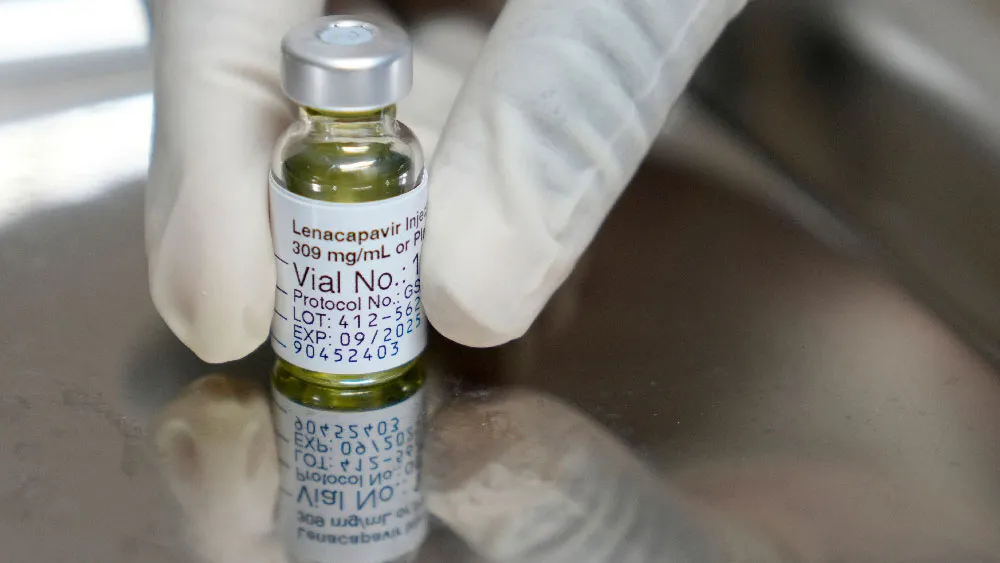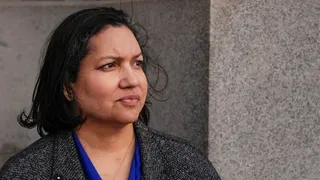June 18, 2011
Transgender Inmate Sues For Surgery
Kevin Mark Kline READ TIME: 3 MIN.
The local transgender community and allies have a long history of fighting for more equitable treatment of transgender inmates in the custody of D.C.'s Department of Corrections (DOC). The issues have ranged from having DOC staff recognize an inmate's stated gender identity to securing placement of transgender inmates in gender-appropriate facilities to ensuring input from the transgender community when such issues arise.
Earlier this month, however, the Associated Press reported the story of Ophelia De'lonta, geographically nearby at the Buckingham Correctional Facility for men in Dillwyn, Va., about 50 miles west of Richmond, but possibly a world away when it comes to her status as a transgender woman. As the AP reported, De'lonta has filed suit against the Virginia Department of Corrections requesting they provide her with gender-reassignment surgery as treatment for her Gender Identity Disorder (GID). This comes after her crude attempt at performing the surgery herself. If De'lonta, 50, wins her case, it would be a first in the U.S. There are other transgender inmates, however, pursuing the same outcome.
''I represent a transgender woman (Vanessa Adams) who is in the Federal Bureau of Prisons,'' says Jennifer Levi, director of the Transgender Rights Project at the Boston-based Gay & Lesbian Advocates & Defenders (GLAD). ''Because she was not diagnosed with Gender Identity Disorder prior to coming into the prison system, she was denied, categorically, any medical care relating to her GID. Not unlike Ophelia De'lonta, she eventually also mutilated her own genitals.''
While Levi points to a number of similar cases, she grants that GID is a relatively rare - though serious - condition, and one that demands treatment, as would any other medical condition. More common, she says, is the need to fight for such treatment.
''There are certainly other examples of stigmatized medical conditions,'' explains Levi, who joined GLAD in 1998. ''HIV was one of them. We used to hear a lot of cases where somebody was not being provided HIV meds. ... There had to be a huge amount of advocacy to make sure that prison officials understood the seriousness of the medical condition and the importance of drug protocols when someone goes into prison. That education is ongoing. I expect this will be as well.''
While Levi reckons that discrimination, rather than some benign misunderstanding, is largely to blame for the mistreatment of transgender inmates, she is hopeful that her client's case, which is nearing resolution, and De'lonta's, stand a good chance of winning.
''I think our client presents a very strong case,'' she says. ''The prison has already reversed its position around excluding medical care for people who don't come into the system without a (GID) diagnosis. They simply recognized it's not constitutionally defensible. So my client has a very good legal case that she's going forward with. I think that Ophelia De'lonta does as well. She already had a case in order to be provided hormones. That was an important first step.''
Should De'lonta's June 3 filing eventually force Virginia to provide her with gender-reassignment surgery, that may also be a sort of first step, rather than a final victory. As Levi points out, GLAD still fields 10 to 20 calls monthly from transgender inmates, often dealing with medical issues.
''In many of these cases, you have very detailed medical plans that require the prison to provide [gender-specific] hygiene and grooming items, and prison officials just flat-out refusing to do so,'' she says. ''It's a hard systemic problem to address....
''If we are successful in getting individual care and treatment for our client, unfortunately that doesn't change automatically the denial that other inmates receive. That will take a longer educational process. It needs to include training at the highest levels. The law is pretty clear in this area, as it happens. It's just that getting the prison staff and administrators to actually follow the law is a big challenge.''






